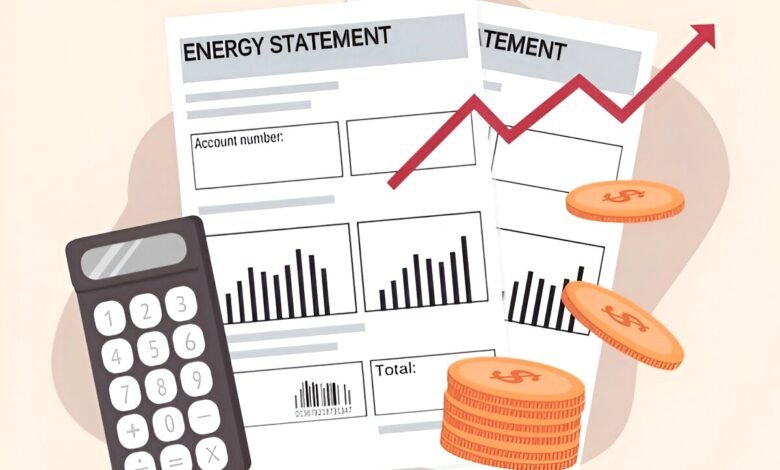
With energy prices soaring across the UK, homeowners are increasingly seeking ways to cut costs without sacrificing comfort. The good news? By combining practical upgrades, smarter habits, and government-backed incentives, you can significantly reduce your energy consumption—and your bills. This guide dives into actionable strategies tailored for UK households, offering detailed insights to help you save money and embrace sustainability.
1. Start with a Home Energy Audit
Before making changes, understand where your energy is being used (or wasted). A home energy audit identifies inefficiencies, from drafty windows to outdated appliances.
- Professional Audits: Certified assessors use tools like thermal cameras to detect heat loss. Services like the Energy Performance Certificate (EPC) assessment provide a roadmap for improvements, grading your home from A (efficient) to G (inefficient).
- DIY Checks: Examine insulation, check for drafts, and review past energy bills. Online tools like the Energy Saving Trust’s Home Energy Check offer personalized recommendations.
Key Areas to Inspect:
- Loft, wall, and floor insulation gaps.
- Heating system efficiency.
- Air leaks around windows, doors, and chimneys.
2. Upgrade Your Home Insulation
Heating accounts for over 50% of UK household energy use. Proper insulation traps heat, reducing reliance on boilers and radiators.
Loft Insulation
- Recommended Depth: 270 mm of mineral wool or cellulose.
- Savings: Up to £355 annually (Energy Saving Trust).
- Grants: The Great British Insulation Scheme offers free or discounted insulation for eligible homes.
Wall Insulation
- Cavity Walls: Found in homes built after 1920. Insulation involves injecting foam or beads into gaps, saving £395+ yearly.
- Solid Walls: Older homes may need internal or external insulation (costing £8,000–£15,000). Grants like ECO4 can offset expenses for low-income households.
Floor Insulation
- Suspended timber floors can be insulated with rigid boards or mineral wool (£1,000–£2,500).
- Savings: £110+ annually.
Windows and Doors
- Double Glazing: Reduces heat loss by 50% compared to single-pane windows. Opt for A-rated models.
- Draught-Proofing: Seal gaps with weatherstripping or brush seals. DIY kits cost under £50.
3. Optimize Your Heating System
A well-maintained heating system is key to efficiency.
Upgrade Your Boiler
- Replace boilers over 10 years old with condensing models (90%+ efficiency).
- Costs: £2,000–£4,000, but save £840+ yearly (EST).
- Grants: The Boiler Upgrade Scheme offers £7,500 toward air-source heat pumps.
Smart Thermostats
- Devices like Hive or Nest learn your schedule and adjust temperatures automatically.
- Savings: £130+ annually by avoiding overheating.
Thermostatic Radiator Valves (TRVs)
- Control heat room by room. Set lower temps in unused spaces.
4. Switch to Energy-Efficient Lighting and Appliances
Small swaps yield big savings over time.
LED Lighting
- Use 90% less energy than incandescent bulbs. Replace all bulbs for £100–£200, saving £65+ yearly.
Energy-Rated Appliances
- Look for A+++ ratings on fridges, washing machines, and dishwashers.
- Example: An A+++ fridge freezer saves £570 over 10 years vs. an A+ model.
Smart Plugs and Power Strips
- Cut standby power (which adds £65/year to bills) by turning off devices remotely.
5. Reduce Water Heating Costs
Heating water is energy-intensive. Try these fixes:
- Insulate Your Tank: A jacket for hot water cylinders costs £20 and saves £70 annually.
- Lower the Thermostat: Set to 60°C to prevent scalding and save energy.
- Install Low-Flow Showerheads: Reduce hot water use without compromising pressure.
6. Harness Renewable Energy
Transitioning to renewables slashes bills and carbon footprints.
Solar Panels
- A 4kW system costs £6,000–£8,000 but saves £1,000+ yearly. Export excess energy via the Smart Export Guarantee.
Heat Pumps
- Air-source heat pumps extract warmth from outside air. Grants cover £7,500 of installation.
7. Adopt Energy-Saving Daily Habits
- Turn Off Standby: Use smart plugs to kill vampire energy.
- Wash Clothes at 30°C: Cuts washing machine costs by 40%.
- Cook Efficiently: Use microwaves for small meals and lids on pots.
8. Utilize Government Grants and Schemes
- ECO4: Funds insulation and heating upgrades for low-income homes.
- Great British Insulation Scheme: Free insulation for homes with low EPC ratings.
9. Switch Energy Tariffs and Suppliers
- Use Ofgem’s comparison tool to find cheaper deals. Consider fixed-rate tariffs for budget stability.
10. Monitor Usage with Smart Tools
- Smart Meters: Track real-time usage via in-home displays.
- Energy Apps: Apps like Loop analyze trends and suggest cuts.
Conclusion
Reducing energy bills requires a mix of upgrades, mindful habits, and leveraging available support. By insulating your home, optimizing heating, and adopting renewables, you can achieve lasting savings while contributing to a greener UK. Start with an energy audit, prioritize cost-effective changes, and explore grants to make improvements affordable. Every step counts—for your wallet and the planet.







